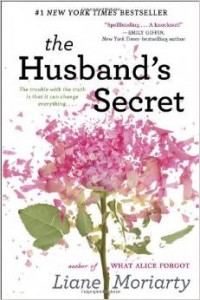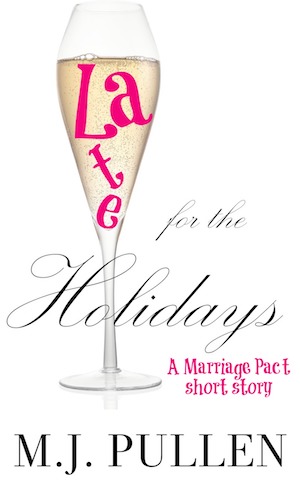
I recently finished reading The Husband’s Secret, by Liane Moriarty, which I adored… right up until the very end. I won’t spoil it for anyone, because it’s absolutely worth reading despite the following complaint: there was this EPILOGUE…
Now, if you’ve read it, maybe you are rolling your eyes with me or maybe you loved it. But basically Moriarty tacks on a mish-mash of explanations at the end of the book about several characters and events, including private information about The Event that is the catalyst for most of the action in the book. It felt hastily written and unnecessary to me. More importantly, it was also outside the POV (point of view) of any of the three main characters, and in fact, contained information that could never be known by any of the characters, but would have significantly altered the outcomes of the book if they had known. It’s almost like the author was letting the reader in on a secret “truth.” About the fictional events. And while the information might have made me feel better about at least one of the book’s characters, I found myself irritated by the epilogue in general.
I couldn’t figure out what it was that bugged me about this ending until I had a conversation the other night with some writer friends. I felt — quite passionately I might add — that this kind of aside to the audience is “out of bounds,” for lack of better phrasing. There is a field of play in a work of fiction; the world and its characters are constructed by the author and presented through some point of view (or several). As readers, we immerse ourselves in this world through the vessel of characters (including omniscient narrators, who play by their own set of rules). The rules and boundaries are established in the first few pages or chapters, and must be followed from there forward. The characters, not the author, are our guides on the journey of the story, and we must know more or less what they know. We can learn something before a character does, and we can have the combined knowledge of many or all the characters. But there is no private truth: events in a novel only matter because they impact the characters.
Don’t get me wrong, I understand the impulse. As an author, once you’ve spent months or even years immersed in a story and its world, it’s hard not to begin believing on some level that the place exists as its own reality (in a sense, it does). And of course, you are the authority on what happens in that world, so why shouldn’t you answer questions about it outside the story? Even J.K. Rowling gets sucked in to imagining out loud what happens off the page sometimes, as she does here regarding the Sorcerer’s Stone getting buried beneath the foot of a centaur.
The problem for me is this: the story must speak for itself. If a piece of information is important enough to the story to mention it in an epilogue or interview, it should be included in the story. I’m not against epilogues, of course; all three of my novels have had an epilogue for different reasons. But an epilogue needs a voice, and the voice must come from somewhere in the story. It can be the voice of the main character or the dead girl or a houseplant or the last of the unicorn freedom fighters. It just can’t be the voice of the author.

When a reader entrusts us with her time and energy and eyeballs, we must offer a sense of fair play in return. We can’t tack on something unearned at the end because it makes us feel better or because we weren’t ready for the magic to end. These are the hard choices.
I don’t know… maybe I’m taking it all too seriously. What do you think? Do you ever read something and think, “Well, that came out of nowhere…”? Are there authors who show themselves like this and it works for you? Share your comments (and examples) below to be entered in the monthly drawing…
______________________________________________
I’m M.J. (Manda) Pullen, an author and mom in the Atlanta, Georgia area. I blog about writing, publishing, motherhood, health, psychology and whatever else strikes me in the moment.
If you enjoyed this entry, please follow along or join my email list. At the end of each month I do random drawings with various prizes for list subscribers, the friends who refer them, and everyone who comments on the blogs. Good luck with that!
My current roster of books includes The Marriage Pact series, a trilogy of funny, semi-realistic Contemporary Romance/Women’s Fiction novels. You can find them for all eBook formats and in paperback here.
Sign up for M.J’s Mailing list & read Late for the Holidays FREE! Sign Me Up!


